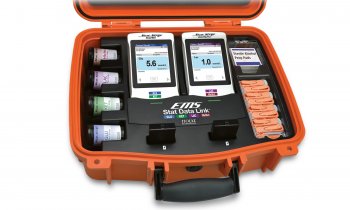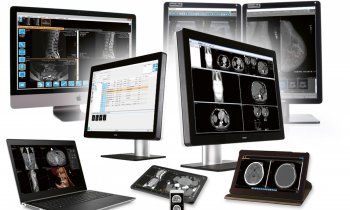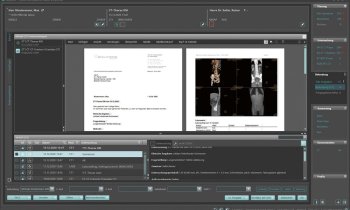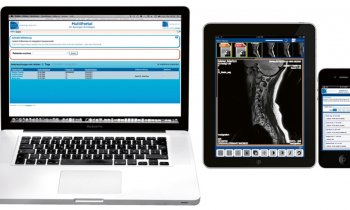Diagnostic imaging toolkit from Canada Health Infoway
Canada Health Infoway is a not-for-profit organisation with the mission to promote and accelerate the adoption of electronic health information systems.
Report: Cynthia E Keen
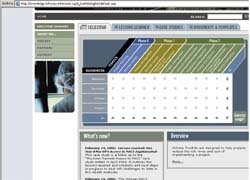
Canada Health Infoway is a not-for-profit organisation founded by the Canadian government in 2001. Its mission is to promote and accelerate the adoption of electronic health information systems for the purpose of improving healthcare throughout its provinces and territories. Infoway has been allocated $1.02 billion (Canadian dollars) in federal government funding to assist local health regional agencies and provincial health ministries in the creation of a national electronic health record (EHR). Canada’s goal is to establish an interoperable EHR for 50% of its population by the end of 2009.
As one component of this initiative, Canada is in the process of implementing provincial interactive PACS infrastructures between 2003 and 2009. Canada Health Infoway is providing $310 million (Canadian dollars) of the funding to create enterprise PACS that utilises centralised electronic archives within each province. To date, Newfoundland and Nova Scotia have achieved 97% filmlessness.
Diagnostic imaging is a core component of the Canadian EHR. Because PACS is complex to plan and implement, Infoway funded the development of a ‘Diagnostic Imaging Toolkit’. The DI Toolkit is designed to share the knowledge and practical experiences of individual and multi-facility PACS implementation. This information can help minimise the risk, time, mistakes and expense of future PACS projects.
The Internet-accessible DI Toolkit contains over 200 items: business cases, strategic and project planning documents, forms and templates, network requirements, testing protocols, ‘how to’ documents, and detailed case study reports of experiences in all aspects of the process of planning and implementing a PACS. Jane Van Essen, the DI Toolkit’s project manager, said ‘Much of the process of implementing PACS is the same, regardless of the healthcare institution or the PACS vendor selected. By sharing transferable information that otherwise would need to be created over and over again, it is possible to significantly reduce the project cost to implement a PACS.’
All documents contained in the toolkit are published in English and French. They are designed for use by hospital and health authority executives, project managers, financial managers, and technical personnel, responsible for recommending and establishing the infrastructure and PACS applications environment. Detailed information is available for use by systems analysts, architects, database administrators, quality assurance and performance testing managers and security specialists. While some of the processes described are specific to the Canadian health system, most of the material is useful to any healthcare institution.
Canada is making this extraordinary resource available free of charge to any publicly (government) owned hospital or government health agency in the world. It is necessary to first complete a free registration at E-Health KnowledgeWay (http://knowledgeinfoway-inforoute.ca/CHI/Pages/UserRegistration.aspx?Lang=English). After registration is accepted, it is necessary to enter the E-Health KnowledgeWay website and submit a new registration for access to the DI Toolkit.
Why is Canada making this valuable information that is sold by professional consultants available free of charge?
‘The faster that digital technology can be adopted for healthcare, the more rapidly spin-off benefits will be,’ Van Essen said. ‘The DI Toolkit was an expensive resource to develop. Canada Health Infoway would like to see it utilised by any healthcare organisation that can benefit from it. We think that the DI Toolkit is truly unique and will help others save money and time as they convert to PACS. Infoway is proud to share this resource with the world.’
30.08.2006






